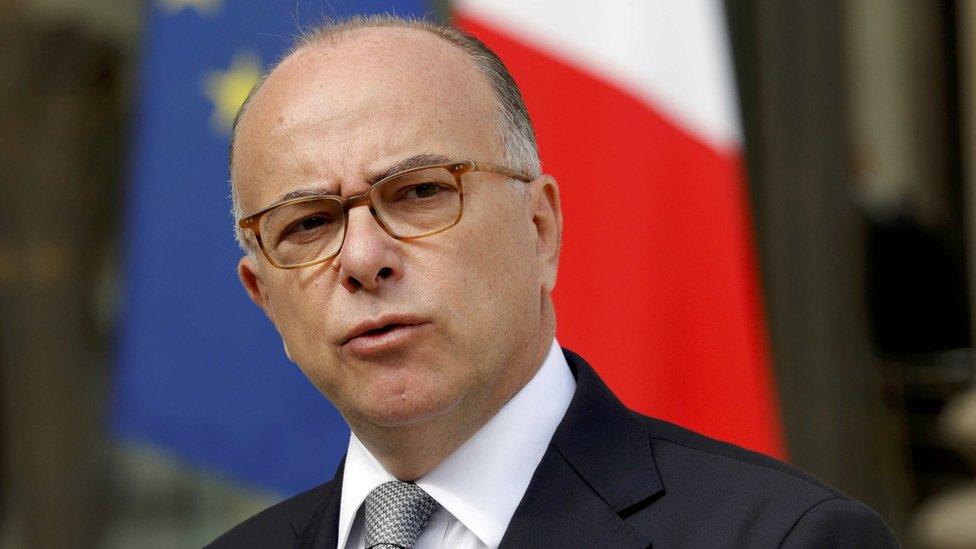France's Socialists open battle for party's future
- Published
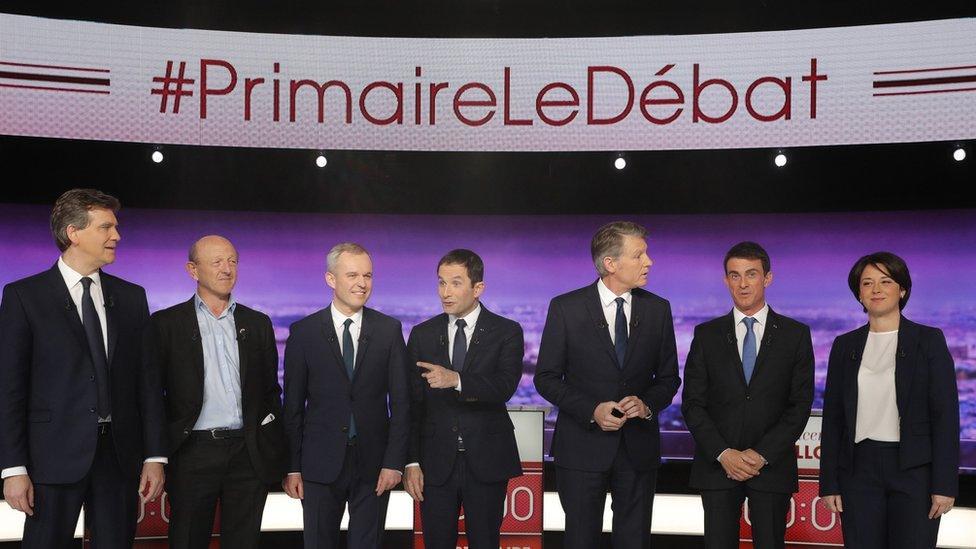
Seven candidates are vying for the Socialist nomination, including one woman, Sylvia Pinel
France is choosing its left-wing presidential candidate this weekend, in what is seen as a crucial test for the direction - even the survival - of the governing Socialist Party.
Six men and one woman are competing for the nomination, with former Prime Minister Manuel Valls currently seen as the frontrunner. But will this contest go any way to uniting a Left bitterly divided by five years in power, and a president too unpopular to seek a second term?
With the tide out, the muddy inlet of Saint-Brieuc seems to sleep in the watery afternoon sun. Its shore deserted but for two Portuguese men picking their way along the sand, looking for worms.
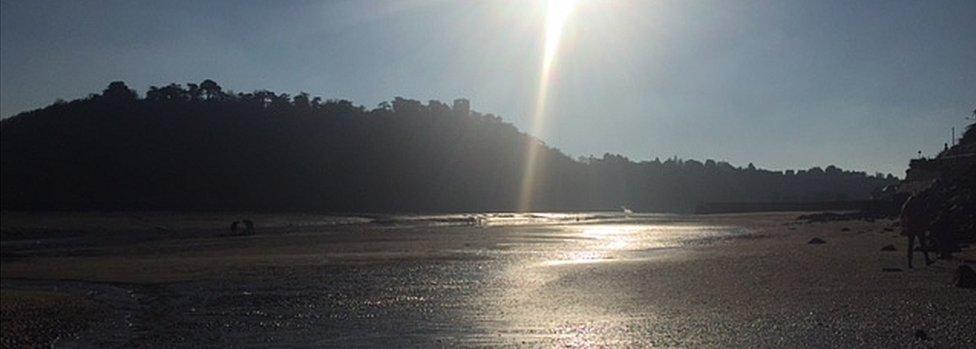
The northern coast of Brittany has until recently been a staunch Socialist area
Above them, a small, green-topped lighthouse sits on the rocks, and basking in the wan sunlight at its foot is a local pensioner, Patrick Labbe.
"This is a left-wing stronghold," Patrick told me. "But that's less and less the case. The Socialist Party has been a disaster on social issues - just look around Saint-Brieuc and you'll see so much destitution."
Saint-Brieuc sits on the northern coast of Brittany; one of the most reliably Socialist regions in France, and a source of support for left-wing candidates seeking to win the first round of the primary contest on 22 January.
Why the French presidential election matters
But Patrick says attitudes are changing: "I voted for [President] Hollande, and like a lot of French I'm disappointed."
"The Socialist Party will struggle to pick itself up. There's a lot of abstention. People are turning to the extremes, in particular Marine Le Pen. Those who are really disappointed want a big change."
Sparking interest in this primary is seen as crucial to reviving the chances of France's governing party, and uniting a scattered field of candidates on the left.
Read more on France's main presidential candidates:
As Patrick Labbe headed home on his bicycle, Manuel Valls was arriving at a local factory a few kilometres away, to drum up some support.
Peering into the cabs of armoured cars, as men in blue overalls applied the finishing seals, Mr Valls seemed as coolly polite as the atmosphere itself, the workers barely glancing up as their former prime minister passed by.
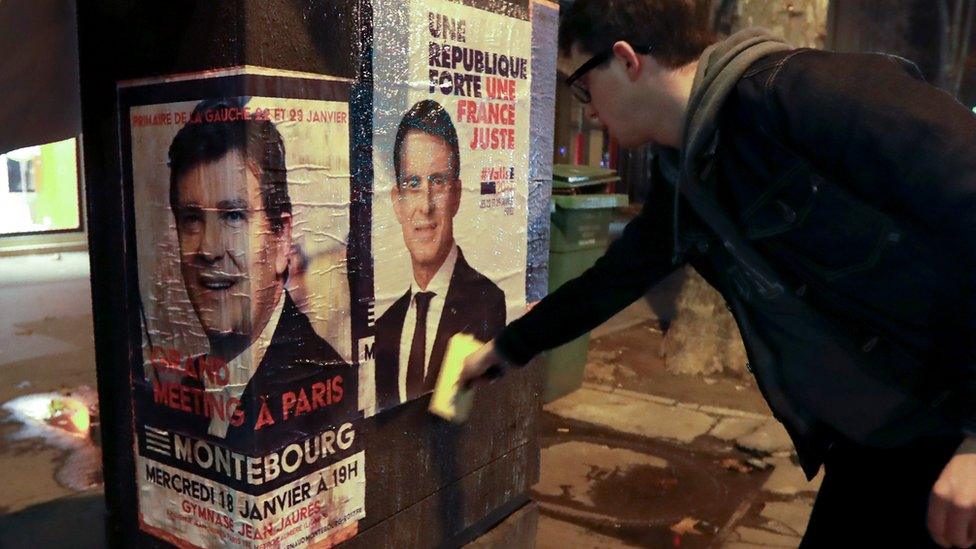
Manuel Valls (R) is currently favourite but Arnaud Montebourg (L) is seen as one of his two main challengers
Mr Valls is the favourite to win the left-wing nomination - seen as more authoritative and experienced, according to one poll, if a little remote.
But after serving as prime minister to France's least popular post-war president, and forcing through some of the government's most hated liberal reforms, his challenge has been to reinvent himself as a unifier of the Left.
Since launching his campaign, the former prime minister has reversed his position on key issues like labour rights, and the government's use of the constitution to bypass parliament.
"I've changed," he says.
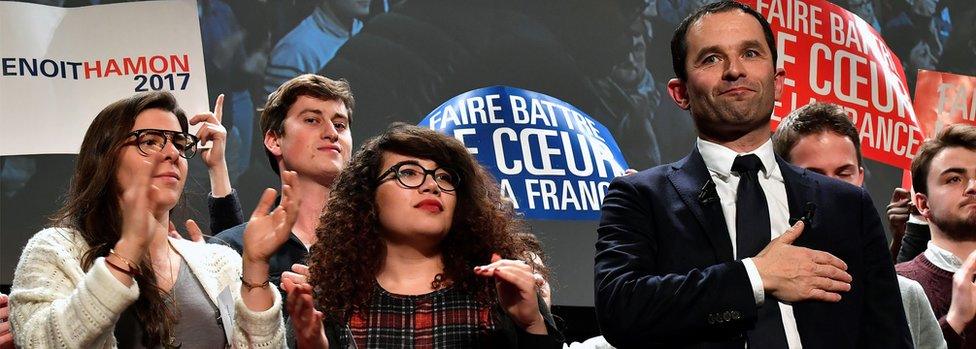
One opinion poll suggested Benoit Hamon (R) could win the nomination if he went through to the run-off
Perhaps it's no surprise, given the strong competition from party rebel Arnaud Montebourg, who has been snapping at his heels for weeks. A former industry minister, who was sacked after refusing to support Mr Valls's liberal reforms, he's promised an end to austerity and more investment.
And in the past couple of days, hard-left candidate, Benoit Hamon, has surged from behind to challenge Mr Montebourg for a place in the primary run-off on 29 January. Among his core proposals are a monthly payment of €750 (£650; $800) to every French citizen, regardless of income; and the legalisation of cannabis.
A fourth Socialist party candidate and former education minister, Vincent Peillon, is trying to catch up with them with plans to revamp Europe, lower taxes on the poor and invest in green technology.
Three hopefuls from other left-wing parties are currently trailing well behind: Sylvia Pinel (Radical Party of the Left), Jean-Luc Bennahmias (Democratic Front) and Francois de Rugy (Ecology party).
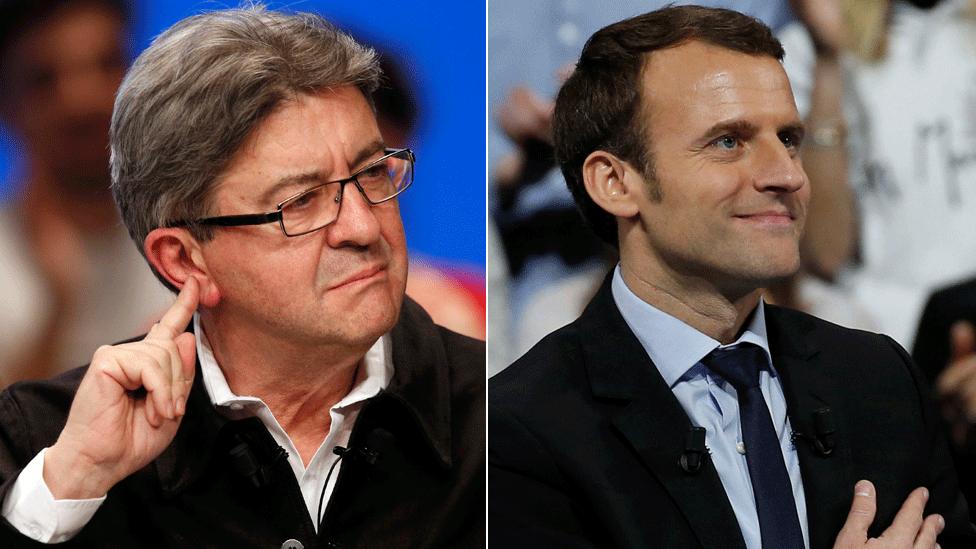
Far-left Jean-Luc Melenchon (L) and Emmanuel Macron are both polling ahead of all the Socialist candidates
But the real competition could come from outside the primary itself, because two of the Left's most popular politicians aren't even taking part.
Jean-Luc Melenchon is running for the presidency on his own, far-left ticket, and could pose a real challenge to candidates like Mr Montebourg or Mr Hamon, should they win.
And then there's Emmanuel Macron, the renegade protege of President Hollande, who resigned from his ministerial post to launch a new political movement called En Marche, promising liberal values and a fresh approach to politics.
His growing appeal among young voters has surprised many sceptics who initially wrote him off as a "champagne bubble" that would quickly burst.
These days his presidential campaign attracts crowds in their thousands, where the leading primary candidates manage only hundreds.
Mr Macron classes his movement as "neither left nor right" but his centrist agenda is attracting many formerly Socialist voters.
The truth about this primary contest is that whoever wins the nomination could quickly find themselves face to face with the real battle for the Left.
How France's Socialist primaries work
Voting from 09:00-19:00 (08:00-18:00 GMT) in 7,530 vote centres in France (and electronically abroad)
Any French adult on the electoral register can vote if they sign a document of values of the Left and pay €1
The two candidates who top the vote on 22 January go through to the 29 January run-off
Follow BBC News coverage on the French presidential election campaign here

- Published28 November 2016
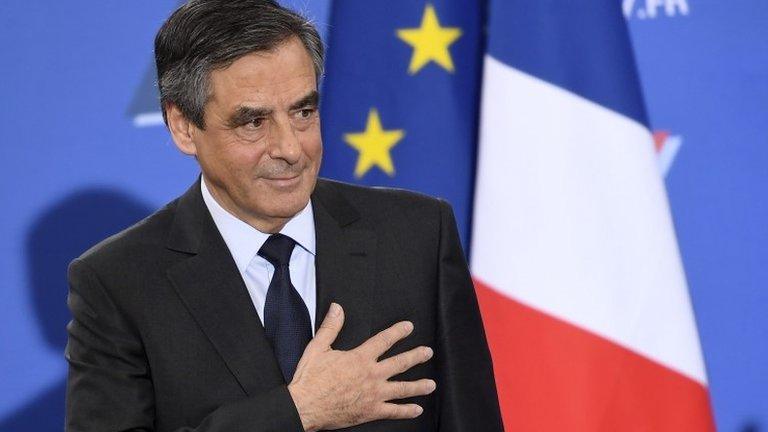
- Published4 January 2017
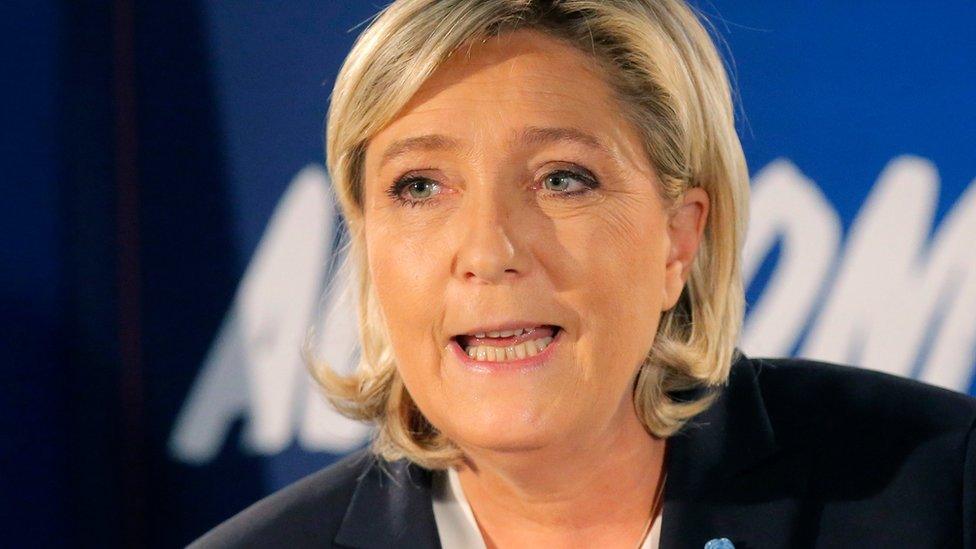
- Published16 November 2016
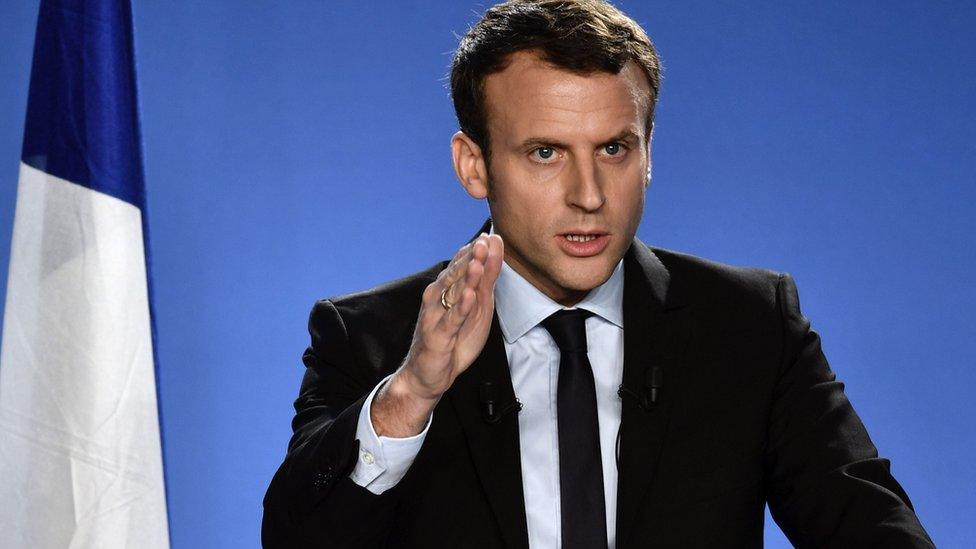
- Published6 December 2016
